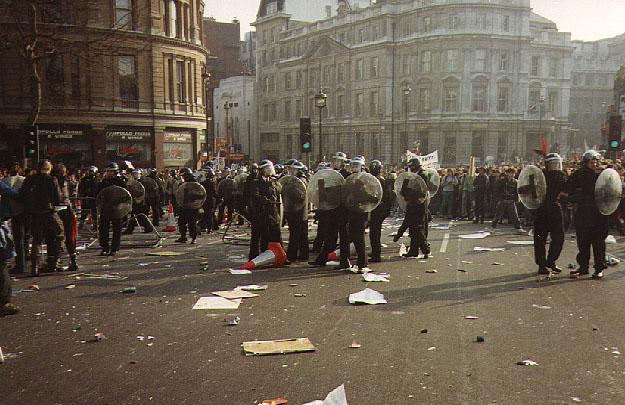Mutual aid played a pivotal role in the anti-poll tax movement in the United Kingdom during the late 1980s and early 1990s. The poll tax, officially known as the Community Charge, was a highly regressive tax that required all adults to pay the same amount, regardless of their income. It was deeply unpopular, and many saw it as an unjust burden on the poor and working-class communities.
As resistance to the poll tax grew, mutual aid emerged as a grassroots organizing strategy that helped empower communities and individuals to resist the tax and support those who were struggling to pay it. Around 18 million people refused to pay the tax, and the large organising against led to its abolition, and significantly contributed to the downfall of the Thatcher government. It was replaced by council tax, which is based on property values and income, making it less regressive. The success of this movement was a testament to the power of mutual aid, community organizing, and solidarity in the face of unjust policies, and was a victory against the onslaught of Thatcherite economics on the working class.
Mutual aid manifested in the anti-poll tax movement in several ways.
- The creation of debt refusal networks. These networks encouraged people to collectively refuse to pay the tax, providing legal and financial support to those facing legal consequences for non-payment.
- Groups provided legal advice and assistance to those facing court hearings and other legal challenges related to non-payment of the poll tax. Volunteers and activists would accompany individuals to court, providing moral support and helping navigate the legal system.
- Education and Awareness: Mutual aid networks also played a crucial role in raising awareness about the unfairness of the poll tax. They organized public meetings, distributed pamphlets, and used various forms of media to educate people about the tax’s impact on their communities.
- Protest and Direct Action: Mutual aid was closely intertwined with the broader protest movement against the poll tax. Activists organized demonstrations, protests, and acts of civil disobedience to oppose the tax. For example, there were a number of poll tax riots, the largest being on 31st March 1990 in Trafalgar Square, one week before the implementation of the tax, where between 70,000 and 200,000 people demonstrated. Mutual aid networks often provided logistical support for these actions.
